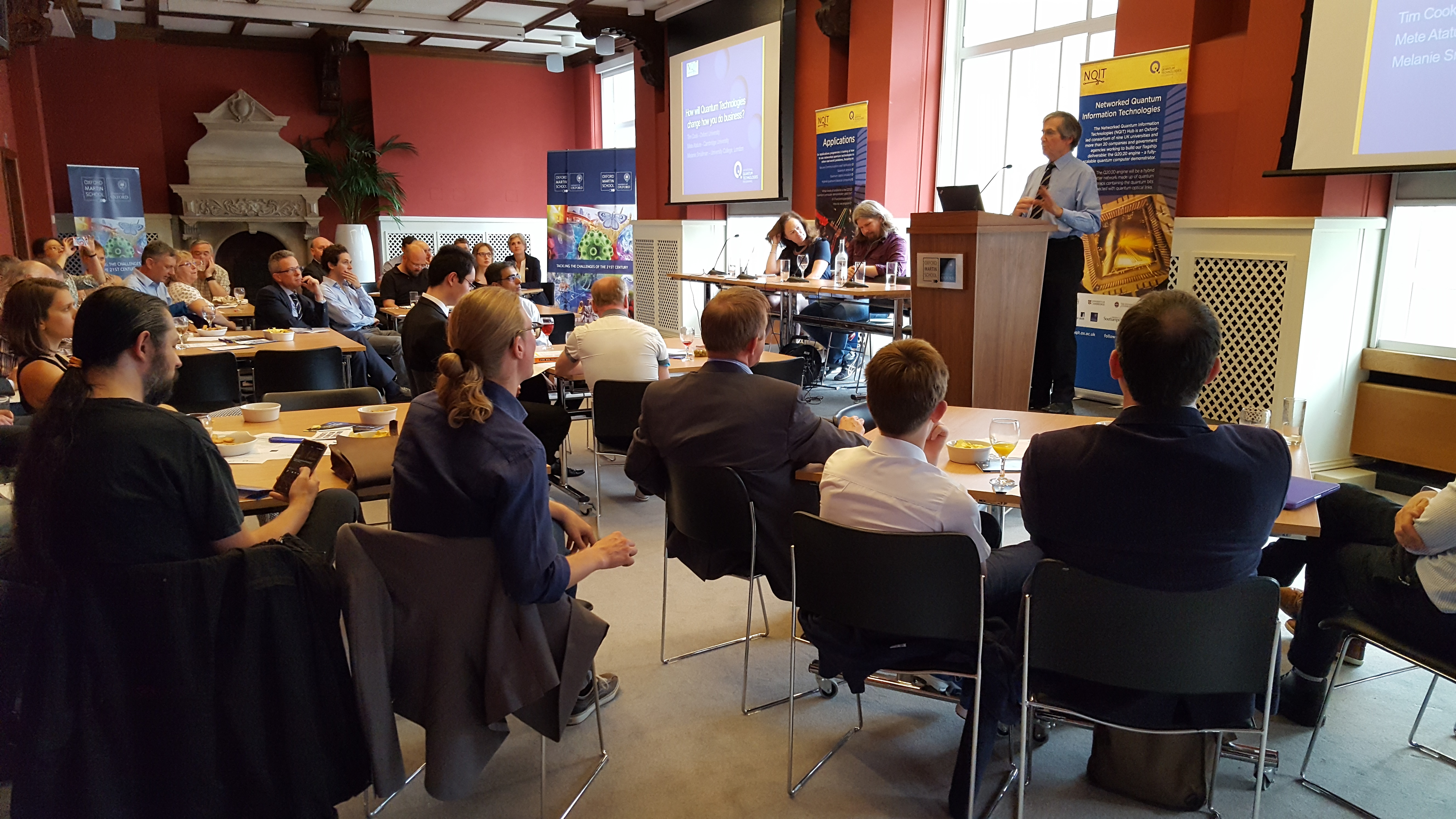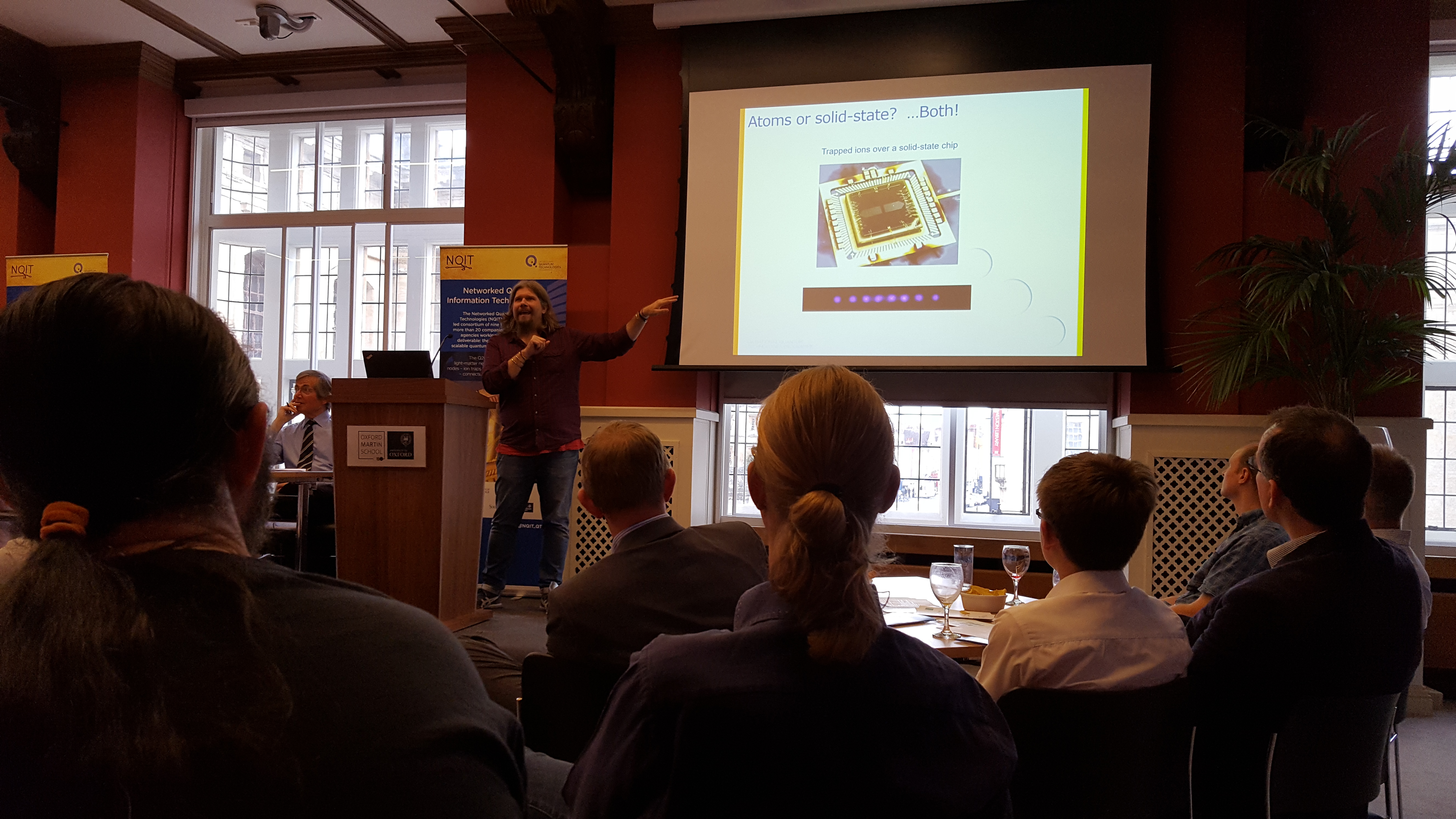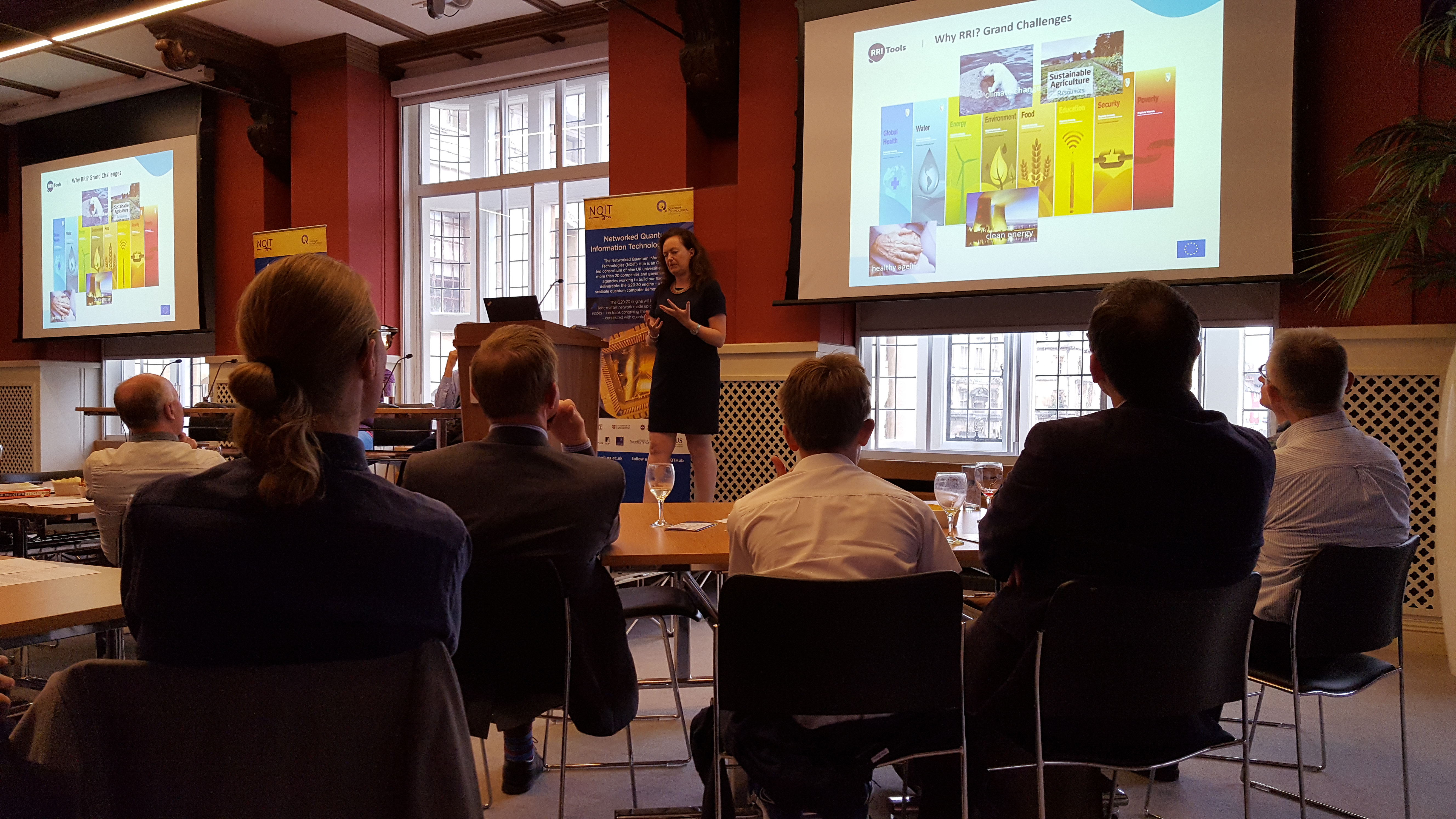How Will Quantum Computers Change How You Do Business? Evening Event in Oxford
Forty visitors from around Oxfordshire came along to listen to a series of talks followed by a lively panel discussion and networking.
We opened with Dr Tim Cook, NQIT Co-Director for User Engagement, who introduced quantum technologies in general and the work of each of the four Quantum Technology Hubs. He gave examples of how universities are working with businesses, large and small, to build a new technology sector.
He then went on to give an overview of how these exciting new technologies might affect business, for example by allowing you to do what you do better and more quickly, such as looking for gas leaks, communicating securely, discovering new pharmaceuticals or search data.
He finished on the key point that “the map is still being drawn, but the UK is in a good position to benefit from these opportunities”.
He was followed by Professor Mete Atature who gave a talk about research highlights from NQIT’s work. He introduced the concept of a networked quantum computer, made up of quantum nodes linked by quantum channels. This allows simultaneous development of multiple technologies to fulfil various different roles within the quantum computer. The quantum nodes don’t have to be the same – some can be tailored for a particular purpose such as storage or fast operations.
The longterm aim is to build a fully scaleable quantum computer, but there are shorter term goals, such as a random quantum number generator, which could be used with micro-bidding, which require true, unpredictable randomness.
Quantum sensors are another short term goal, but what does quantum actually add? Mete explained that we already use “quantum” sensors everyday – MRI sensors make use of nuclear spin to map out the brain. But the new generation of quantum technologies, called “Quantum 2.0”, make use of the odd bits of quantum physics such as entanglement and non-locality.
Whereas MRI picks up the spins of thousands of atoms in your brain to produce a large-scale image, new quantum sensors allow you to look at small things at the scale of a single cell. Mete went on to explain his own research into quantum sensors using diamond nanocrystals.
The last talk of the evening was from Dr Melanie Smallman from UCL. Melanie’s expertise is in Responsible Research and Innovation, which, as she explained, aims to move beyond the idea of doing “the best science in the world” and instead strive to do “the best science for the world”. This involves engaging users from the beginning, thinking about science and technology as “co-production”, involving society with the decisions of science.
Science and technology promise great futures but also bring some bad things with them, and these positive and negative aspects are often mixed up together. These developments both reflect the world we live in and also build the world we live in.
The panel discussion that followed included some great questions from audience, such as “when will I see a quantum computer?”, “which industries want to use quantum technologies?”, “with a quantum computer, how do you know which is the right answer?” and “How can we educate legislators about the impact of quantum computers?”
You can watch the talks here:


